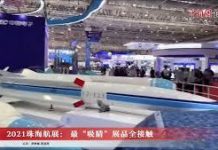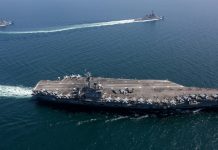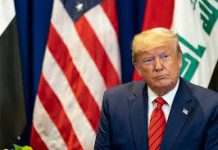
According to a report, a Chinese company called Shanghai H Win, known for manufacturing military-grade protective gear, has been involved in significant transactions with an unidentified customer, most likely of Russian origin. The customer’s interest in purchasing large quantities of bulletproof vests and helmets from the company suggests a strong demand for nonlethal but militarily useful equipment.
While the customer’s identity remains unclear, the evidence indicates a possible link to Russia, as there have been substantial orders for similar items listed in the company’s catalog from Russian buyers. This development raises questions about China’s actions, considering its official stance on promoting peace.
These deliveries of dual-use technology, which can have both civilian and military applications, highlight a notable loophole in the efforts of Western countries to constrain Russia’s war capabilities. Such technology provides a degree of plausible deniability for Western authorities who may hesitate to confront China due to its economic significance.
Customs data supports the wartime strength of China’s dual-use exports to Russia, revealing a stark contrast with Ukraine, which has seen a sharp decline in its imports of similar equipment. Notably, Russia has significantly imported drones from China, valued at over $100 million this year, far surpassing Ukraine’s imports. Additionally, Chinese exports of ceramics, a key component of body armor, have surged by 69 percent to Russia, while experiencing a significant drop of 61 percent to Ukraine.
These figures illustrate the complexities of the geopolitical landscape and the challenges Western nations face when dealing with China’s dual-use technology exports, particularly concerning Russia’s ongoing conflict with Ukraine. The situation highlights the need for careful consideration and effective strategies to address the issue while balancing economic and security interests.
“What is very clear is that China, for all its claims that it is a neutral actor, is in fact supporting Russia’s positions in this war,” said Helena Legarda, a lead analyst specializing in Chinese defense and foreign policy at the Mercator Institute for China Studies, a Berlin think tank.
As a political analyst, it is essential to examine the potential consequences of China’s actions in relation to selling weapons or military equipment to Russia amid the ongoing conflict in Ukraine. One expert, Legarda, suggests that if China were to cross the red line and engage in such transactions, the European Union (EU) might respond with secondary sanctions targeting those enabling Putin’s aggressive war.
However, Legarda also points out that certain equipment, like body armor, thermal imaging technology, and commercial drones with offensive capabilities, might not trigger a significant response from the EU. The reason for this lies in the dual-use nature of these components or equipment, which can serve both civilian and military purposes. This makes it challenging for the EU to reach a consensus on imposing sanctions in such cases.
Chinese companies, including Shanghai H Win, have experienced a surge in business following Russia’s full-scale invasion of Ukraine. The demand for dual-use equipment has risen, leading to increased inquiries from trading companies. However, there are complexities in the export process, with companies needing certification from the Chinese military and documentation about the final customer to export directly to Russia.
The identity of a specific customer, depicted in pictures inspecting body armor on Shanghai H Win’s website, remains uncertain. The sales representative denies the individual being an actual customer and suggests that he might be linked to a customer from Europe, potentially from Ukraine, Poland, or even Russia. Subsequently, Shanghai H Win removes the post featuring the mysterious customer from its website after these inquiries.
As the situation unfolds, it becomes evident that navigating the sale of dual-use technology amid geopolitical tensions poses challenges and raises questions about the potential response from the international community. The evolving dynamics between China, Russia, and the EU will require careful monitoring and thoughtful analysis to understand the implications for regional stability and security.
As a political analyst, it is crucial to identify the buyers involved in the transactions and understand how evidence of these deals can be accessed. The registry of declarations of conformity, accessible to those familiar with international customs classifications on the Russian internet, provides insights into the importers, suppliers, and product descriptions.
These declarations allow the final buyer to verify the authenticity of the products and, in effect, facilitate the import of goods without explicit consent from the manufacturer. In cases where goods are traded through intermediaries, the manufacturer may remain unaware that their products are destined for Russia. However, the searchable nature of the registry allows for the identification of the ultimate buyers of Chinese military equipment.
One notable buyer is a company named Silva, based in the remote Eastern Siberian region of Buryatia. In January of this year, Silva filed declarations detailing substantial orders for 100,000 bulletproof vests and 100,000 helmets from the manufacturer Shanghai H Win.
Importers like Silva often exhibit characteristics typical of “one-day” firms, which are essentially shell companies in Russia set up to conceal transactions. These entities are often new, listed at obscure residential addresses, and have limited staff and assets. Their financial statements may not accurately reflect the turnover implied by the filings.
For instance, Silva was registered as recently as September of the previous year, reporting zero revenues for the year 2022. A Google Street View search of its address in Ulan-Ude, the capital of Buryatia, leads to a dilapidated apartment block, raising further questions about its legitimacy.
Another Russian company, Rika, also declared a shipment of body armor from Shanghai H Win in March. In January, Rika had previously declared a consignment of helmets from another company called Deekon Shanghai, which shares an address with Shanghai H Win. It appears that these two companies are affiliated, as confirmed by a representative from Shanghai H Win.
As the investigation continues, understanding the identities of these buyers and their affiliations sheds light on the complexities of the supply chain involved in the trade of military-grade protective gear between China and Russia. It also underscores the importance of monitoring and addressing potential loopholes in international trade regulations to prevent the flow of such equipment to conflict zones.
A woman representing Rika responded to inquiries, asserting that their purchases are made in Russia, not China. However, this denial seems implausible given the evidence found. Notably, in addition to the protective gear, a search of declarations made by Rika revealed transactions involving thermal optical equipment sourced from China.
Another Russian company named Legittelekom, which identifies itself as a Moscow-based freight forwarding company on its homepage, also appears in the records as a buyer. According to filings from November 24, the company has made significant orders, including 100,000 pieces of headgear and 100,000 suits of outerwear from Deekon Shanghai.
When contacted, a man representing Legittelekom declined to provide a comment and refrained from confirming whether the company supplied equipment to the Russian military. This non-committal response raises further questions about the nature of their transactions and the potential involvement in military supply chains.
As a political analyst, it is essential to closely scrutinize the statements and actions of these companies to gain insights into the complex network of military equipment procurement. The apparent inconsistencies and lack of transparency in their responses underscore the need for rigorous investigation and the importance of monitoring trade practices that may have implications for regional security and international relations.
“This is a commercial activity and we do not disclose our commercial activities,” the man said in response to both questions.
Pozitron, a company based in Rostov-on-Don, a city in the southern region that was briefly captured by Yevgeny Prigozhin’s Wagner mercenaries during their failed uprising, is involved in significant transactions with a Chinese firm called Beijing KRNatural. According to customs data shared by ImportGenius, Pozitron imported more than $60 million worth of “airsoft helmets,” “miscellaneous ceramics,” and other items from Beijing KRNatural in November and December of 2022.
Pozitron’s own declarations of conformity during the same period align with these flows, indicating orders for a total of 100,000 helmets. Additionally, the declarations reveal the company’s acquisition of various drones from the Chinese multinational SZ DJI Technology Co., Ltd in December. Although the exact quantity remains unspecified, some of the specified models are known to have been used in the Ukrainian theater of war, such as DJI’s Mavic 2 Enterprise Advanced quadcopter and the Mini 2 lightweight drone.
While the product descriptions in the declarations and customs records seem innocuous, claiming the items are for paintball games and not for military or dual-use purposes, experts suggest that mislabeling dual-use goods for civilian use is a common practice when they are, in reality, intended for military applications.
Pozitron, founded as recently as March 2021, has experienced remarkable financial growth during the ongoing conflict. Its revenues surged from 31 million rubles (approximately $400,000) in 2021 to an astonishing 20 billion rubles (almost $300 million) in 2022, as indicated in its financial statement.
When questioned via email, Pozitron’s general director, Andrey Vitkovsky, denied any imports of drones or similar products from the People’s Republic of China. However, the evidence from customs data and declarations suggests otherwise, raising concerns about the company’s role in the supply chain of military equipment and the potential implications of such trade in the context of the ongoing conflict in Ukraine. As a political analyst, it is crucial to closely monitor such developments and assess their impact on regional stability and international relations.
“The main activity of Pozitron LLC is the purchase and sale of consumer goods, sporting goods, and fabrics, both produced in the Russian Federation and imported from China,” said Vitkovsky while adding, his company’s activities were “exclusively peaceful in nature, in compliance with all rules and restrictions.”
The denial expressed by Russian companies regarding their involvement in trade that may support the Kremlin’s war effort is a common reaction, driven by the fear of potential Western sanctions. The specter of sanctions looms large for Russian entities that could be implicated in activities perceived as aiding the conflict.
Pozitron, the company under scrutiny, has drawn attention from Western authorities, as reported by a sanctions expert who requested anonymity due to the sensitive nature of the topic. This suggests that the company’s activities have raised concerns and attracted international scrutiny.
In contrast to the sizable orders of protective gear seemingly destined for equipping a significant fighting force, the purchases of drones present a different pattern. These orders are distributed among various buyers, including companies and individuals. Among the buyers of drones from DJI and its subsidiaries are Gigantshina, Vozdukh, and Nebesnaya Mekhanika (“Heavenly Mechanics”), which served as the official distributor of the Chinese company in Russia before the war.
DJI, responding to the situation, has taken voluntary measures to cease all shipments and operations in Russia and Ukraine since April 26, 2022, which was approximately two months after the conflict erupted.
As a political analyst, it is important to consider the implications of such trade patterns and the responses from involved companies in the context of geopolitical dynamics and the ongoing conflict in Ukraine. The actions of these companies and the international responses they elicit can have significant ramifications for regional stability and diplomatic relations.
“We stand alone as the only drone company to clearly denounce and actively discourage use of products in combat,” the spokesperson said in comments.
DJI, a prominent Chinese company known for its drones, asserted that it terminated its association with Nebesnaya Mekhanika, the Russian company that served as its official distributor in Russia before the war. Despite this claim, Nebesnaya Mekhanika filed additional declarations for shipments of DJI drones on September 15 last year and March 27 this year.
In response to these declarations, a spokesperson from DJI clarified that the company was not involved in the preparation of the documents, emphasizing that they were completed by Russian parties. The declarations do not provide specific details about the entities responsible for exporting or importing the products in question.
The spokesperson acknowledged media reports and other documents indicating the transportation of DJI products to Russia and Ukraine from other countries where they are readily available. However, the company maintains that once the products leave their control, they cannot influence their subsequent use.
Curiously, ImportGenius data reveals that a Chinese company named Iflight continues to ship DJI drones to Nebesnaya Mekhanika via Hong Kong, with the shipments received care of a local company called Lotos. Notably, the most recent consignment was delivered on October 10 of the previous year, with Russia indicated as the country of origin, which raises questions about the supply chain and possible irregularities.
Nebesnaya Mekhanika, despite advertising DJI drones on its website, has not responded to requests for comments.
As a political analyst, it is vital to observe these developments with a keen eye on the complexities of international trade and the potential use of sensitive technologies in conflict zones. The interactions between Chinese companies, Russian entities, and the export of military-related equipment raise concerns about adherence to international regulations and the implications for regional security dynamics. Monitoring such activities is essential for understanding how geopolitical interests intersect with commercial transactions in the context of ongoing conflicts.
The trafficking of a wide range of military-related equipment, from low-tech body armor to sophisticated drones and thermal optics, has exposed a vulnerability in the effectiveness of Western sanctions. The ambiguity surrounding the dual-use nature of this equipment, combined with China’s significant manufacturing role, has, for the time being, hindered meaningful actions by the West to address this issue.
Moreover, there is a concerning flow of technology through China, which may include components originating from the West that could be directly utilized for military purposes. Russia is well aware of this loophole and has been capitalizing on it to acquire Western technology for its war efforts in Ukraine. A recent analysis by the KSE Institute, linked to the Kyiv School of Economics, discovered that over 60 percent of critical components in Russian weapons found on the battlefield came from U.S. companies.
The issue of China’s role in this matter was raised by U.S. Secretary of State Antony Blinken during his recent visit to Beijing, where he sought reassurances that China was not providing lethal assistance to Russia for use in Ukraine. However, Blinken expressed ongoing concerns that Chinese firms might be facilitating technology transfer to Russia, supporting its aggression in Ukraine. French authorities have also voiced their apprehensions about China’s delivery of dual-use equipment to Russia, though they lack strong sanctions mechanisms comparable to the United States.
The ability of the West to exert significant pressure on China to halt the flow of dual-use products into Russia is limited. While the U.S. can impose an outright ban on dollar-denominated transactions, the EU lacks a similar powerful sanctions tool, partly due to the euro’s less widespread use in global markets. The EU has taken some action, compiling a list of Chinese companies prohibited from trading with the bloc in its latest package of Russia sanctions. However, lobbying efforts by Beijing led to the removal of four companies from the blacklist.
Addressing this challenge presents complexities in terms of the scope and enforcement of Western sanctions, particularly concerning indirect shipments through China. Secondary sanctions may not be enough to address the issue effectively. Some experts suggest that manufacturers should assume responsibility for monitoring where their products end up, akin to the obligations imposed on banks to enhance customer oversight and anti-money laundering operations after the 2008 financial crisis.
As a political analyst, it is crucial to understand the intricate dynamics surrounding the involvement of multiple actors and the complexities of implementing effective measures to curb the flow of dual-use technology to conflict zones. The ongoing geopolitical implications of this issue demand comprehensive assessments and innovative approaches to mitigate risks and promote international security.
“What we can do differently is to create the same infrastructure for the corporates,” explained Ribakova, who is director of the international program at the Kyiv School of Economics. “We have to threaten them with serious fines.”
Maxim Mironov, an expert in sanctions and an assistant professor of finance at the IE Business School in Madrid, suggests that despite the West’s efforts to expand sanctions as a means to penalize those supporting Putin, there seems to be a lack of political resolve to enforce these sanctions against Beijing.
Mironov questions whether politicians have the necessary determination to impose sanctions on China, and his assessment is that, at present, they do not. According to him, China seems to be sending a clear message that it is indifferent to any attempts by the West to impose sanctions. Furthermore, the European Union appears unwilling to take action if China objects, which gives the impression that Beijing will continue pursuing its interests regardless.
Notably, there has been no response to requests for comment from the European Commission, the U.S. National Security Council, and the Chinese Mission to the EU, highlighting the sensitivity and complexity of the issue.
As a political analyst, it is crucial to consider the dynamics between major global players like the West and China concerning the enforcement of sanctions. The apparent reluctance to take decisive action against Beijing reflects the intricate geopolitical considerations and economic interests at play. Understanding the nuances of this situation is vital to comprehend the broader implications for international relations and regional stability.




